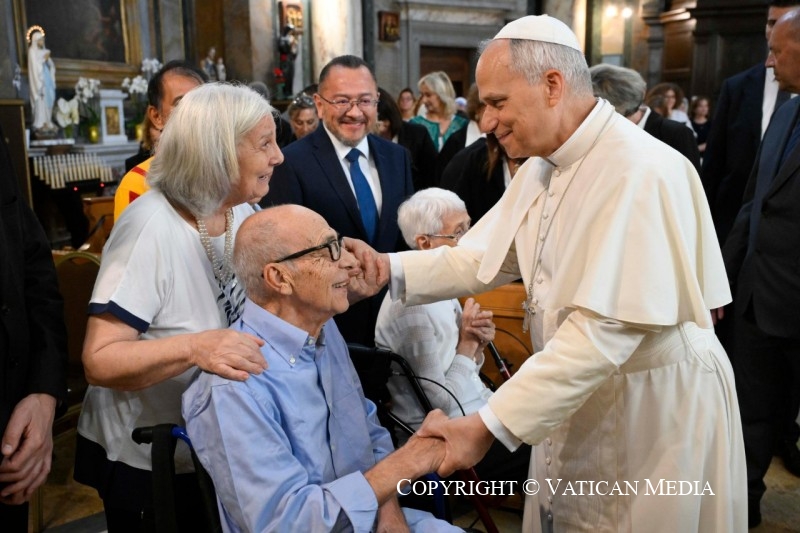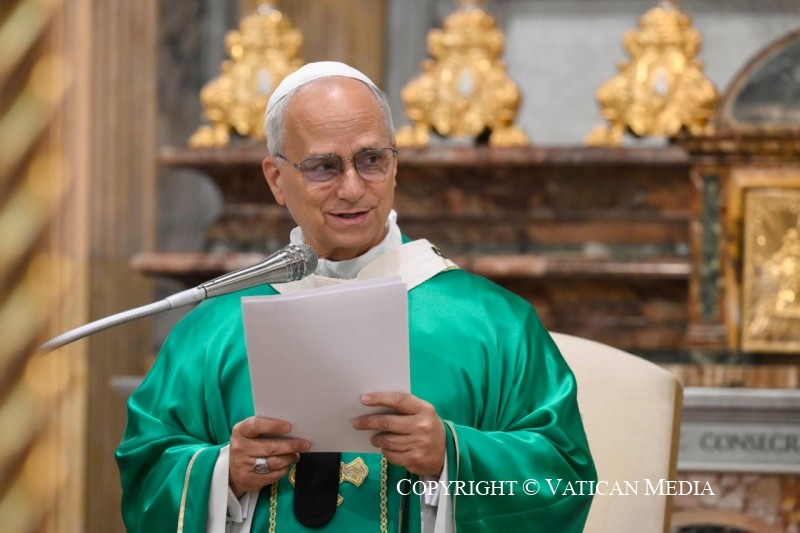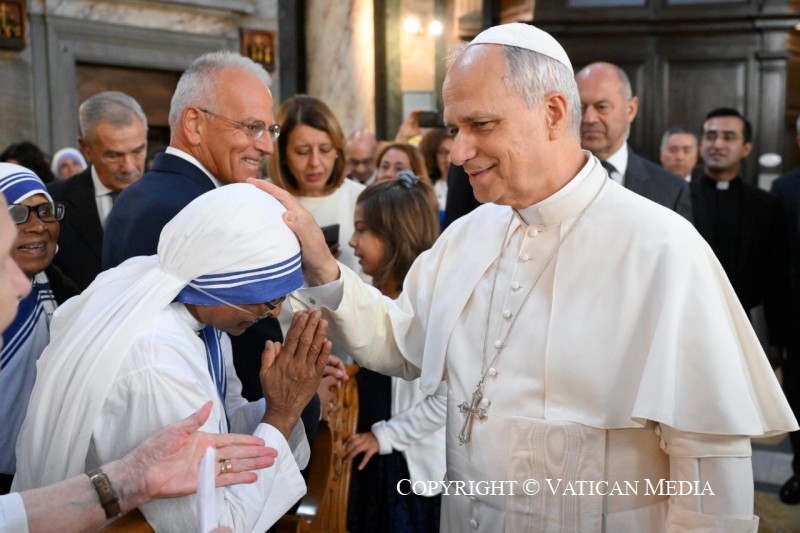Hub for hearts and time in prayer
Speaking to those gathered in the ancient church, the Pope expressed his delight at presiding over the Eucharistic celebration, greeting with gratitude the Augustinian religious who carry out their ministry here, especially the parish priest, Father Mario Millardi, the new Prior General of the Order, Father Joseph Farrell, as well as Father Gioiele Schiavella, who was the parish pastor from 1991 to 2006.
The Pope observed that the church stands in a special location at one of the main entrances to Vatican City, which is also symbolic of the pastoral ministry carried out here: We are, so to speak, “on the border,” he said, and in front of Saint Anne pass all those who enter and leave the City. He thanked members of the parish who, in various ways, “help keep the life of the parish community alive and also carry out a generous apostolate.”
The Holy Father recognized that some pass through for work, some as guests or pilgrims, some in haste, others with anxiety or serenity, as he expressed his hope that “each one experience that here there are open doors and hearts — for prayer, for listening, for charity!”

Time to carefully examine our relationship with the Lord
In this regard, he noted that Sunday’s Gospel challenges us to carefully examine our relationship with the Lord and, therefore, with one another.
“Jesus,” the Pope recalled, “presents a very clear alternative between God and wealth, asking us to take a clear and coherent stance: ‘No servant can serve two masters,’ and therefore ‘you cannot serve God and wealth.’”
“This,” Pope Leo observed, “is not a passing choice, like many others, nor an option that can be revised over time depending on circumstances,” but rather “requires a true way of life. It’s about deciding where to place our heart, about clarifying whom we truly love, whom we faithfully serve, and what our real good is.”
Inner revolution
From the moment we are born, the Pope recognized we all need care and affection, a home, food, and clothing, but “the thirst for wealth risks taking the place of God in our hearts when we believe it is wealth that saves our lives — just as the dishonest steward in the parable thinks.”

The temptation, the Pope warned, is this, “to think that we could live well without God, while without wealth we would be sad and burdened with countless needs.”
The Pope acknowledged that in the face of need, we feel threatened, but often instead of asking for help with trust and sharing with fraternity, “we are inclined to calculate, to accumulate, becoming suspicious and distrustful of others” — a way of thinking, which, he lamented, turn others into competitors, rivals, or people to exploit.
However, he underscored, “the Word of the Lord does not divide people into rival classes; it urges everyone toward an inner revolution, a conversion that begins in the heart,” and one he suggested applies to our world more than ever.
Prayers for rulers of nations
“Today, in particular,” he said, “the Church prays that the rulers of nations may be free from the temptation to use wealth against humanity — turning it into weapons that destroy peoples and into monopolies that demean workers.”
“Today, the Church prays that the rulers of nations may be free from the temptation to use wealth against humanity — turning it into weapons that destroy peoples and into monopolies that demean workers.”
The Pope stressed that “whoever serves God becomes free from wealth; but whoever serves wealth becomes its slave!” while “whoever seeks justice, turns wealth into a common good,” but “whoever seeks domination turns the common good into the prey of their own greed.”
Sacred Scripture sheds light on this attachment to material goods, which confuses our hearts and distorts our future.
Crushed by violence
Thus, the Holy Father encouraged those present to persevere with hope “in a time seriously threatened by war.”
“Entire peoples today,” he decried, “are being crushed by violence — and even more by shameless indifference, which abandons them to a destiny of misery.”

Faced with these tragedies, the Pope underscored, “we do not want to be passive, but to proclaim in word and deed that Jesus is the Savior of the world, the One who frees us from all evil.”
Pope Leo XIV concluded with his hope the Holy Spirit might “convert our hearts, so that, nourished by the Eucharist — the supreme treasure of the Church — we may become witnesses of charity and peace.”
Source: vatican.va





